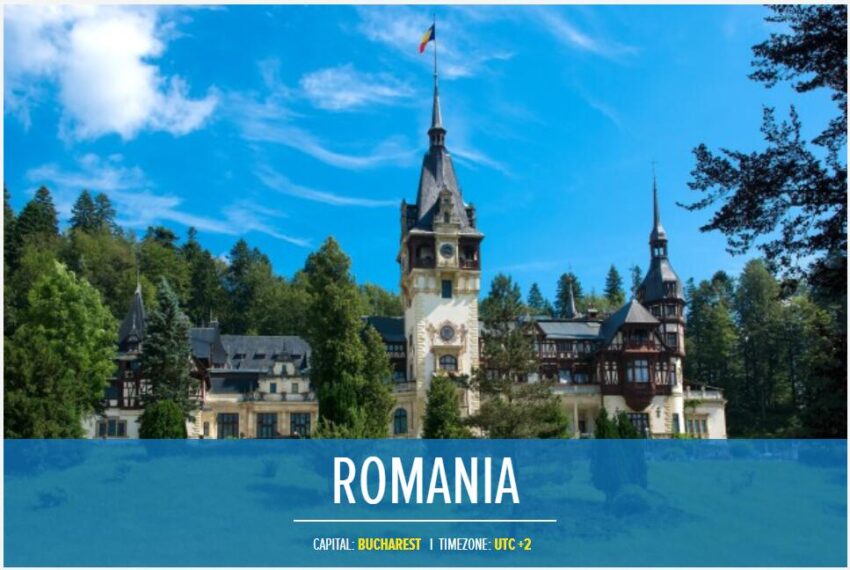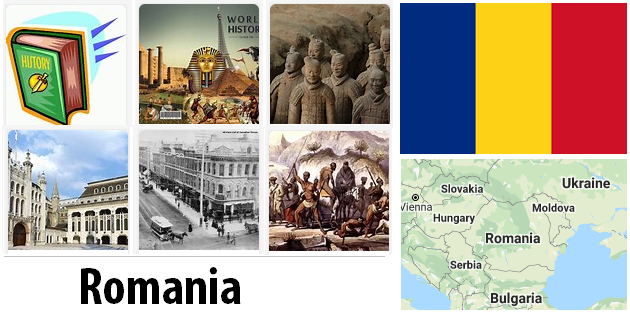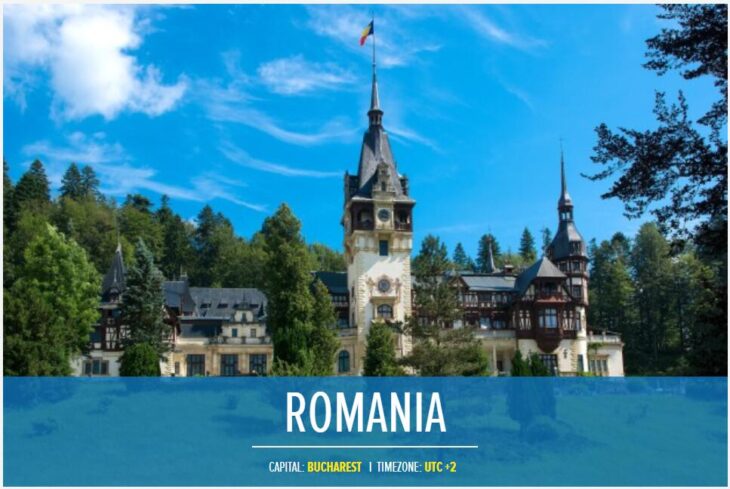And in 1964 independence was declared. The new Socialist Republic of Romania had a new Constitution. The communist party was restructured and strengthened. A National Committee for Scientific Research, the General Union of Trade Unions, the Academy of Socio-Political Sciences “Stefan Gheorghiu”, the Romanian Automobile Club were born and finally the laws on abortion, divorce and pensions were regulated.
According to Abbreviationfinder, an acronym site which also features history of Romania, the years 1966/67 were the most interested in improving diplomatic ties with China, Federal Germany and Russia. In 1968 the government regulations for teaching, the establishment of the Romanian Bank for Foreign Trade and the adoption of a new Criminal Code were completed. In addition, Romania developed friendly agreements with Dubcek’s France and Czechoslovakia.
And following the invasion of Czechoslovakia by Soviet troops, Ceausescu officially declared, in the Grand National Assembly of August 22, 1968, not only the sovereignty of Romania, but the decision to apply the people’s war for self-defense against any enemy. And for this, institutions such as the Patriotic Guard and a Defense Council were created.
In that year it continued with the rehabilitation of many victims of Stalinism; various concessions were made to the Magyar and German minorities; some freedom was granted to intellectuals; a Front of Socialist Unity and some Workers’ Councils for ethnic minorities were created.
Ceausescu continued this policy of revisiting communism, in agreement with other western communist parties, such as the Italians, French and Spanish, in the belief that in each country the political ideology should conform to the character, the different historical-national-social conditions of every population.
Romania sought ever closer relations with non-Communist Balkan countries, such as Greece. In 1973 a hydroelectric power station was built right near the border with Yugoslavia.
In 1977 there were two major events: the first was a huge disaster of victims and damages, caused in March by a great earthquake. The second was a gigantic strike started by the miners of Petrosani, in the Jiu valley, who then obtained not only the required wage increases but also the removal of some intransigent leaders, held responsible for the situation.
And precisely during the period of post-earthquake reconstruction, the Romanian government was able to ascertain how poor the productivity of the country was and how extensive absenteeism was. And all this in stark contrast to what was the ambitious development program that the government had in mind to pursue.
The difficulties grew mainly due to the considerable energy consumption that had made Romania one of the main oil-importing countries from Iran. And when the Islamic revolution of 1979 occurred there, with the consequent international oil crisis, the country saw noticeable increases and the disproportionate increase in foreign debt. And these economic difficulties adversely affected the political conduct of the country where Ceausescu, after having made several unfortunate reshuffles, assigned the main government offices to the members of his family.
So in November 1979 his son Nicu joined the Central Committee of the Party and in 1980 his wife Elena, who already covered high positions, became vice-president of the Council of Ministers.
The crises, energy and agriculture, worsened the situation and the people, when the rationing of wheat products was adopted in October 1981, a series of strikes began in the area of the Jiu valley, which had previously been the scene of demonstrations by miners.
The years from 1983 to 1985 were extremely difficult, due to the continuing difficulties, aggravated also by a tragic drought which also significantly reduced the production of electricity.
Ceausescu continued with his international politics, but during the 1980s Romania had revisited all its relations with the Soviet Union so it did not agree with Gorbachev’s reformist policy.
In November 1989 Ceausescu, during the 14th Party Congress, was reconfirmed as leader of the nation: but in Bucharest, where he was having a rally, he was bitterly contested by the crowd who, then, started a real riot popular, severely repressed. The revolt was general. Ceausescu and family tried to escape by helicopter but were captured, tried and found guilty of genocide, corruption and destruction of the national economy and, as such, sentenced to death and executed on December 25, 1989.
He was immediately appointed “interim” president of the republic I. Iliescu. Roman, however, a professor at the Polytechnic University of Bucharest, had the task of forming the government. The first decrees issued by this government, in early January 1990, were:
– cancellation of the leading role of the communist party and of the “rural accommodation” program;
– decriminalization of abortion;
– abolition of the death penalty.
The state was called the Republic of Romania. The Constitution underwent amendments, on the basis of which the free market system and that of minority rights and freedoms were established. And food exports, so much supported by the past regime, were immediately stopped.
Various parties were formed, of which the main was the Christian Democratic-Peasant National Party, and with this multiparty situation the political elections of May 20, 1990 took place where Iliescu was reconfirmed, in a bicameral Parliament.
On June 20 Roman formed a new government whose main initiative was privatization. Then he agreed wage and pension increases. But the situation in 1991 worsened, because energy supplies were completed; industries had to stop.
Serious disorders, including social ones, such as xenophobia, intervened and forced Roman to leave the government. Finance Minister Th. Stolojan was designated to form the new coalition government.
On December 8, 1991, after a referendum, a new Constitution was approved. In 1992 the economic situation worsened and in September there were new elections, won by the Democratic Front for National Security. The main opposition party was the Democratic Convention, a center-right ally and Iliescu was confirmed. The new minority government was formed by N. Vacaroiu, an independent economist, former finance minister of the Stolojan government. On February 28, 1994, a huge national strike was decreed to protest against rising unemployment and rising prices.
In the international field, with the various tensions with Russia, relations with all the Balkan countries, but also with those of Western Europe, were strengthened after an association agreement with the European Economic Community of February 1993.
In recent years a strong nationalistic regurgitation was characterizing Romanian society and in fact in 1994 many members of the ultra-nationalist Romanian National Unity Party had joined the coalition government, together with the Party of Greater Romania, the Agrarian Democratic Party and the Socialist Party of the Workers.
The alliance between these parties had brought many social difficulties, also in relation to relations with other states.
In fact, for example, ethnic minorities were not allowed to access education in their native language, as it was for the Hungarians of Transylvania. Moreover, many problems had also arisen with the United States, which had had to intervene several times in defense of the resident Jews, as they were subject to various harassments, especially by the nationalists.
Not to mention the economic difficulties in which the government was struggling, which, in order to make consolidation work, had decided to link, in the public sector, salary increases to higher worker productivity. In addition, the Supreme Court had drafted a bill that would prevent strikes in those sectors considered strategic for the nation’s economy, such as energy.
So in 1995 there were demonstrations and strikes, very sustained, with the accession also of miners and railway workers.
Between autumn 1995 and spring 1996 all coalition parties withdrew from the government and this fell. In June 1996, new legislative elections were necessary which, while registering significant decreases in government approval, assigned control of many large cities, including Bucharest, to the Romanian Democratic Convention and the Social Democratic Union, which was born just in January 1996.
Those policies, held in November of the same year, were the prerogative of the center-right opposition and a large number of seats, both in the House and in the Senate, went to the Romanian Democratic Convention, whose leader, E. Constantinescu, won the presidential elections with 54.4% of the votes.
The government was formed and chaired by V. Ciorbea, a former unionist and exponent of the Convention, and was a coalition.
Ciorbea was inheriting a very unsuccessful situation. He, supported by the International Monetary Fund, in February 1997 proposed a program in which he asked:
– the application of enormous sacrifices;
– cancellation of grants;
– privatization and thinning out of the state administration.
There were immediately: an increase in inflation, a very strong increase in prices, even foodstuffs, and very, very discontent.
In 1998, after Ciorbea’s resignation, he became Premier R. Vasile who immediately wanted to implement a free market regime and asked to join the European Union. And, considering the mines unproductive, he decreed their closure entrusting over 6000 miners to unemployment who, at the beginning of 1999, immediately organized a strike. After that Vasile was forced to retrace his steps and to postpone the closure of the mines for another 5 years.
In foreign policy, Romania strengthened relations with all western countries and in March 1999, as a member of NATO, he had to approve the bombings against Milosevic’s Yugoslavia.
Since, however, in December 1999 he had not reached the announced economic recovery, he was forced to resign and Premier became M. Isarescu.


